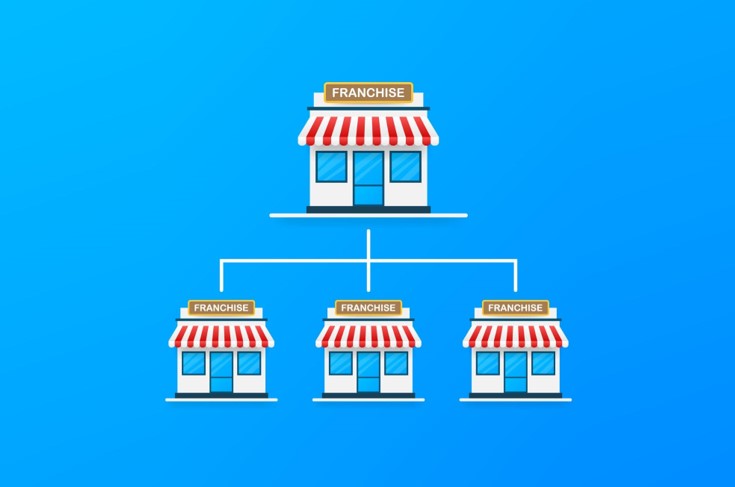Opening a franchise is often seen as a lower-risk way to start a small business. It provides a ready-made business model, brand recognition, and ongoing support. However, it isn’t the perfect solution for everyone. For those who prefer complete independence, the rules and restrictions of a franchise may not be ideal. If you’re considering becoming a franchisee, it’s essential to understand both the benefits and challenges before making a decision, which is why most turn to FranchiseWire.com to learn more about the industry and opportunities.
Here’s a detailed look at what franchising entails, along with the key advantages and disadvantages to help you decide if it’s the right path for you.
What Is Franchising?
Franchising allows individuals or groups to buy into a larger, established business and run one or more locations under the same brand name. In exchange for adhering to the franchisor’s guidelines, franchisees receive the rights to use the company’s name, logo, and reputation. They also gain access to marketing materials, store setup support, operational training, and supplies.
The process of becoming a franchise owner typically involves submitting applications, attending interviews, undergoing background checks, and meeting financial requirements. Unlike applying for a regular job, franchisees must also have the financial resources to meet startup costs and licensing fees. For instance, McDonald’s requires a minimum of $500,000 in liquid assets and a $45,000 franchise fee to get started.
The Advantages of Franchising
1. Ready-Made Business Plan
One of the biggest benefits of franchising is that you don’t have to start from scratch. Many of the challenging tasks—such as creating a business plan, choosing products or services, and designing a store—are already done for you.
Franchisees receive a proven framework to follow, which reduces the guesswork and potential mistakes that independent business owners often face. This makes franchising an appealing option for people who want to run a business but prefer to avoid the complexities of starting from zero.
2. Easier Access to Financing
Securing financing for a small business can be challenging, especially for startups with no track record. Many franchises, however, offer in-house financing programs to help new franchisees get started.
While these loans may not always come with the lowest interest rates, they can be a helpful option if you’re struggling to get approval for a traditional small business loan. Additionally, lenders are often more comfortable financing franchises because they’re seen as a lower-risk investment compared to independent startups.
3. Reduced Risk of Failure
Franchising provides a safety net by leveraging an established brand with a proven track record. When you buy into a franchise, you know the product or service is successful and has an existing customer base.
Assuming your franchise is in a good location and the brand maintains its popularity, you’re more likely to experience steady business and financial success compared to starting an independent venture.
4. Access to Guidance and Support
Franchise owners benefit from ongoing advice and support from the franchisor. This includes tailored guidance on running your business, marketing strategies, and staff training.
Moreover, as part of a franchise network, you can connect with other franchisees to share experiences, tips, and solutions. This sense of community provides valuable insights and helps you avoid common mistakes.
The Challenges of Franchising
1. High Startup Costs
While franchises offer many advantages, they often come with significant upfront costs. Franchisees typically need to pay a licensing fee to use the brand name, in addition to costs for equipment, inventory, and store setup.
For example, some franchises require hundreds of thousands of dollars in liquid assets to qualify. If you’re looking for a low-cost way to start a business, an independent venture might be more suitable.
2. Limited Flexibility
Franchising comes with strict rules about how the business is run. From the products or services you offer to the store design and staff uniforms, franchisors often require franchisees to follow their established guidelines.
This lack of freedom can be frustrating for entrepreneurs who want to innovate or personalize their business. If you value creative control, a franchise might not be the best choice.
3. Ongoing Fees
In addition to the initial investment, franchisees are typically required to pay ongoing fees to the franchisor. These can include royalty fees, which are often a percentage of monthly profits, and marketing fees to support the brand’s advertising campaigns.
These costs can add up over time, reducing the overall profitability of the business. It’s essential to carefully review the franchisor’s fee structure and calculate how it will impact your earnings.
4. Dependency on the Brand
While brand recognition is a significant advantage, it also comes with risks. If the franchisor faces negative publicity, such as a corporate scandal or health violation at another location, your business could suffer even if your own operations are impeccable.
As a franchisee, you’re tied to the reputation of the larger company. This lack of control over external factors is an important consideration when deciding if franchising is right for you.
Is Franchising Right for You?
Franchising can be a fantastic opportunity for those looking to own a business without starting from scratch. It offers a proven business model, brand recognition, and ongoing support. However, it also comes with challenges such as high costs, limited flexibility, and dependency on the larger company’s reputation.
Before committing to a franchise, weigh the pros and cons carefully. Research different franchisors, compare their terms and fees, and consult with a lawyer or financial advisor to ensure you’re making an informed decision.
Final Thoughts
Starting a franchise can be a rewarding path to business ownership, but it’s not a one-size-fits-all solution. By understanding the benefits and challenges, you’ll be better equipped to decide whether franchising aligns with your goals and resources.
If you’re ready to explore franchise opportunities, take your time to research, plan, and seek professional advice to ensure a successful and fulfilling business journey.

